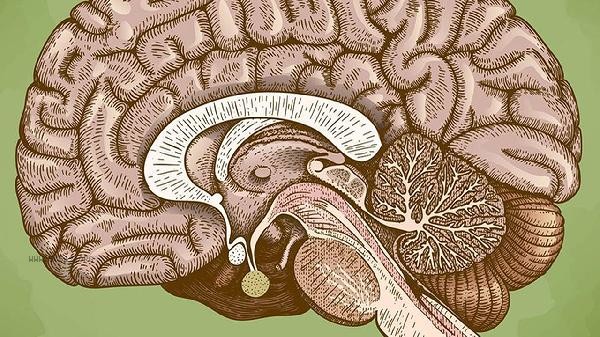The inability of the brain to stop daydreaming may be related to anxiety, stress, attention deficit, lack of sleep, or overthinking. This situation usually manifests as uncontrolled thinking, repeated recollection of details, or worries about the future, which can be alleviated through psychological regulation, relaxation training, improving sleep patterns, diverting attention, and professional intervention.

1. Anxiety
Anxiety emotions can easily trigger rumination, manifested as excessive worry about events that have not occurred. Try abdominal breathing exercises or progressive muscle relaxation to help reduce physiological arousal levels. Specific events that trigger anxiety can be recorded in daily life, and irrational beliefs can be adjusted through cognitive-behavioral therapy.
2. Stress
Long term stress can lead to inhibition of frontal lobe function in the brain, causing people to fall into repetitive thinking. Regular aerobic exercise such as brisk walking and swimming can promote the secretion of endorphins. Establish a task list to prioritize tasks and avoid cognitive resource consumption in multitasking.
3. Attention deficit [SEP]: Distraction of attention may exacerbate the phenomenon of cognitive wandering. Mindfulness meditation training can enhance metacognitive abilities, and it is recommended to practice 10 minutes of breath anchoring exercises every day. Reduce the high-frequency switching use of electronic devices such as mobile phones and cultivate a habit of single threaded work.
4. Lack of sleep

Sleep deprivation can affect the regulatory function of the brain's default mode network. Maintain a fixed bedtime and avoid blue light stimulation one hour before bedtime. In the short term, you can try sleep aid ingredients such as Valerian extract, but in the long term, you need to improve your sleep hygiene habits.
5. Overthinking
Compulsive thinking may be associated with perfectionism tendencies. Set a daily exclusive time limit for worry and repeated thinking, and transfer thinking through activities that require concentration such as handicrafts and painting. In severe cases, consult a psychologist to assess whether there are accompanying characteristics of obsessive-compulsive disorder.
It is recommended to cultivate 15 minutes of daily blank time and not schedule any activities to allow the brain to naturally clear. Add deep-sea fish rich in omega-3 fatty acids to your diet and reduce caffeine and refined sugar intake. When there is a persistent loss of control of thinking for more than two weeks, or accompanied by physical symptoms such as palpitations and changes in appetite, it is necessary to seek timely evaluation at a psychiatric department. Regular physical and mental integration exercises such as yoga and tai chi can help rebuild the connection and balance between the mind and the body.









Comments (0)
Leave a Comment
No comments yet
Be the first to share your thoughts!